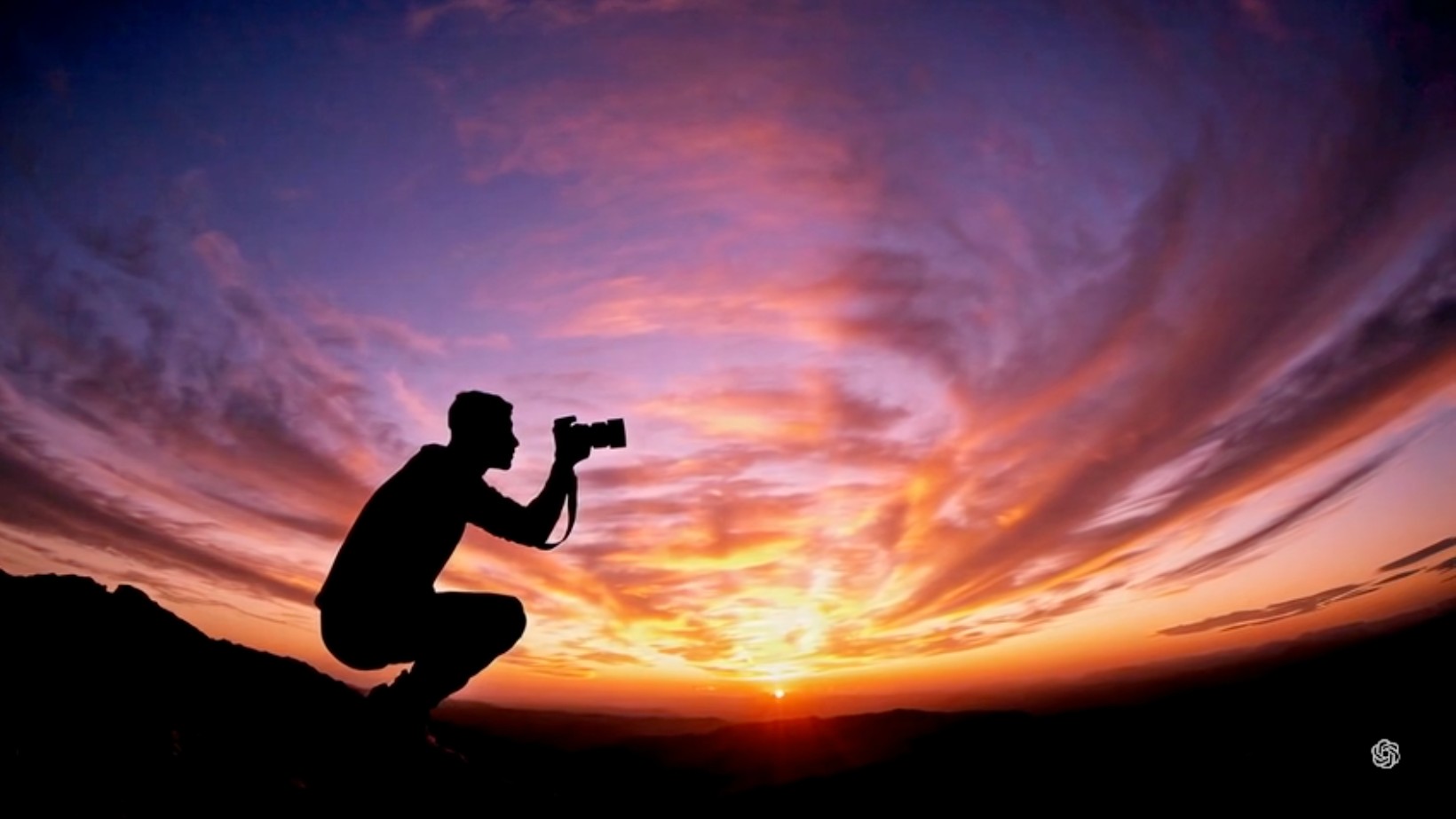
Photography as we know it is changing, and fast. Thanks to AI, images that once required hours of shooting in a studio and editing on a computer can now be achieved in minutes; sometimes without even picking up a camera. And that's something no professional photographer can ignore.
Love it or hate it, AI is reshaping everything right now. And whether you’re a seasoned pro or just starting out, it's important to understand where this is all taking us. So buckle up as we explore the good, the bad, and the perhaps surprising ways AI is transforming photography.
1. The inevitable loss of work
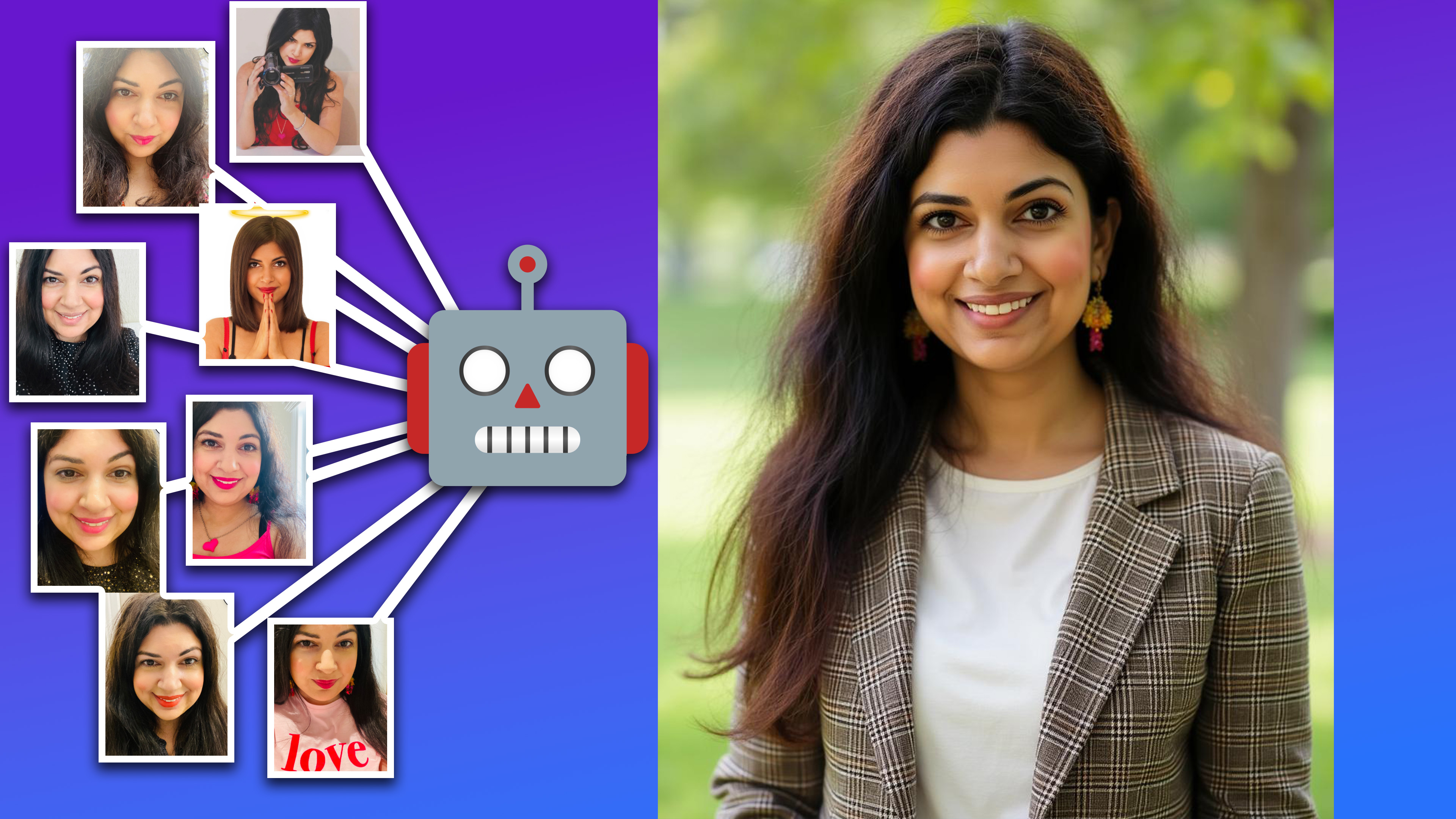
We'll start with the most obvious consequence of the explosion in AI: photographers are going to lose jobs, and freelancers are going to lose work.
This recently came home to portrait photographer Ariane Sherine in dramatic way, when she reviewed Aragon.ai, which can generate professional-quality headshots at a fraction of the cost and time required by humans. Her conclusion? "Overall, Aragon.AI's proficiency is frightening, and it's only going to get better as time goes on," she wrote. "Who knew I'd get my P45 (that's British for 'pink slip') from a robot?"
Stock photography is also experiencing an upheaval, under threat from tools such as Midjourney and Google Imagen. These low-priced AI platforms allow people to generate increasingly convincing, photorealistic visuals from text prompts, making them viable alternatives to spending money on stock. While their current limitations (such as their penchant for adding extra fingers) provide some respite in the short term, the tech is improving at an alarming pace.
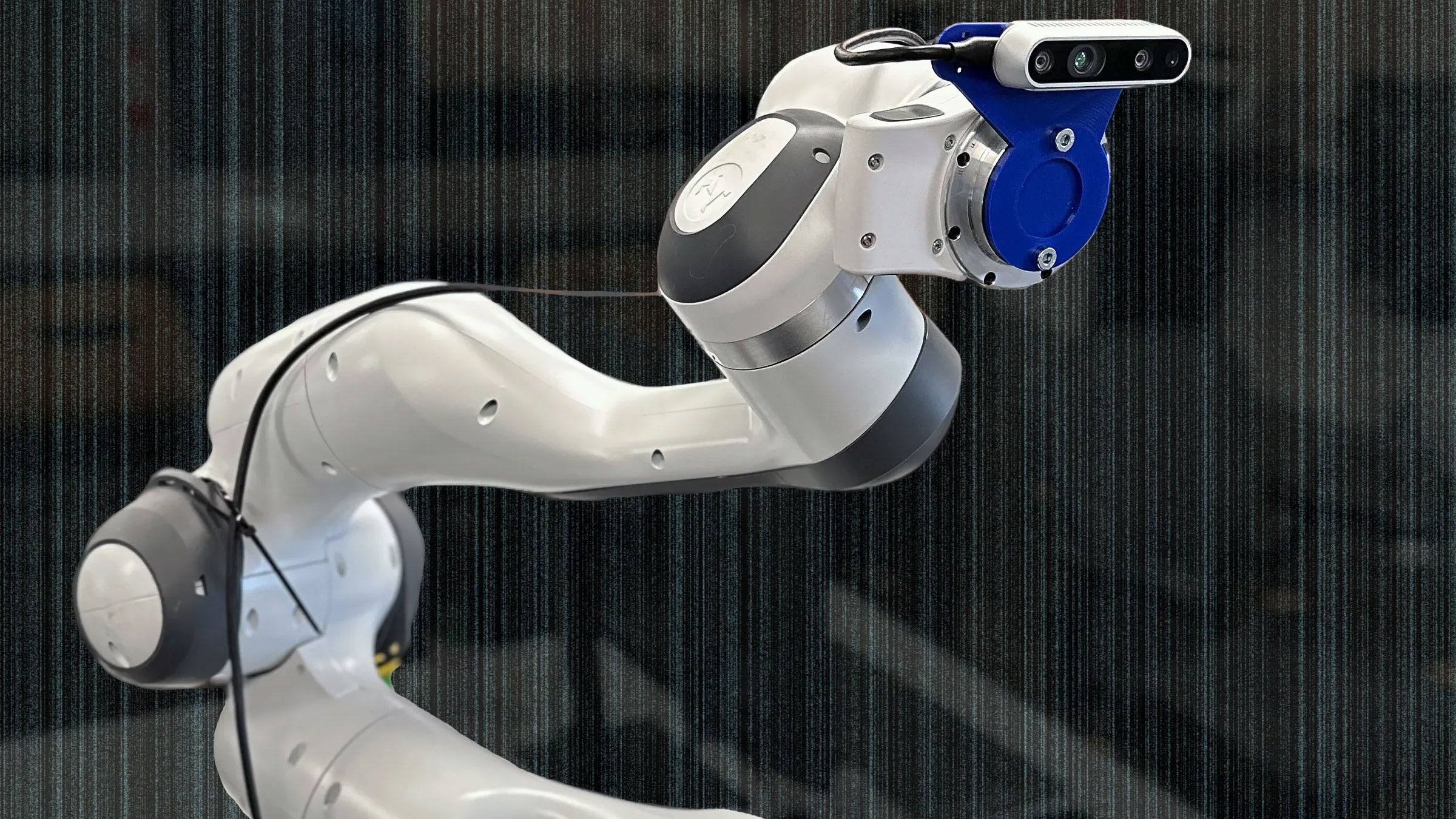
Indeed, whatever your field, it's likely that AI software is coming to take your job, if it's not there already. Not to mention AI hardware too, with the development of Photobot signalling a future (albeit a distant one) where robots shoot weddings, public events, and more.
How should photographers respond? It's probably best to start thinking about diversification and specialization. Because offering unique, human-centric services that AI cannot replicate—such as personalized interactions and creative direction—will be key to survival in this evolving landscape.
2. AI-led photo editing: convenience at a cost
Photo editing has traditionally been a cornerstone of professional photography, requiring skill, creativity, and time. Right now, though, AI is rapidly de-professionalising this process. Features such as Photoshop's one-click Distraction Removal have made basic editing accessible to virtually anyone. And the convenience is undeniable.
You can now complete edits in minutes that once took hours, freeing up time for other creative pursuits. AI’s ability to remove objects, enhance details, and even generate entire scenes opens new doors for creativity.
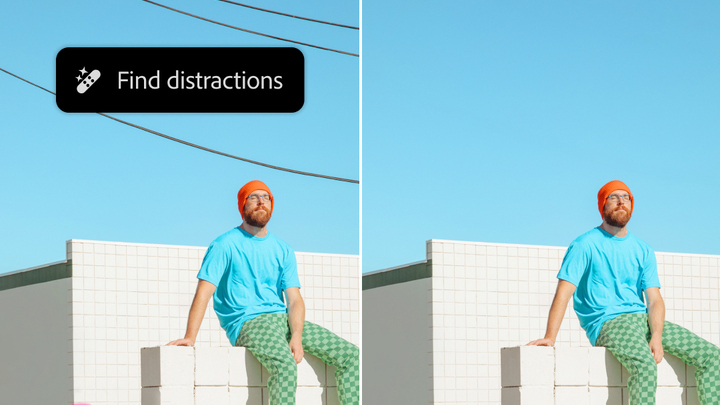
Yet, this democratization of editing comes with a downside: homogenisation. As more people rely on AI, the distinctiveness of individual styles risks being overshadowed by algorithmic preferences. Images shared on social media are already start to look eerily similar, adhering to AI’s interpretation of “perfection”.
This phenomenon is already sparked debate among photographers who feel pressured to conform to AI-driven aesthetics to satisfy clients. It's reminiscent of 1990s singers who could actually sing well, but felt the need to add the 'autotune sound' to their recordings to remain fashionable.
To stand out, thought, we'd argue it's vital for photographers to focus on maintaining their artistic vision going forward. Integrating your own personal creativity while drawing on AI’s efficiencies is a tricky balance to strike, but it'll be key to success in the second half of the 2020s.
3. Fighting AI photo fakery: a societal challenge
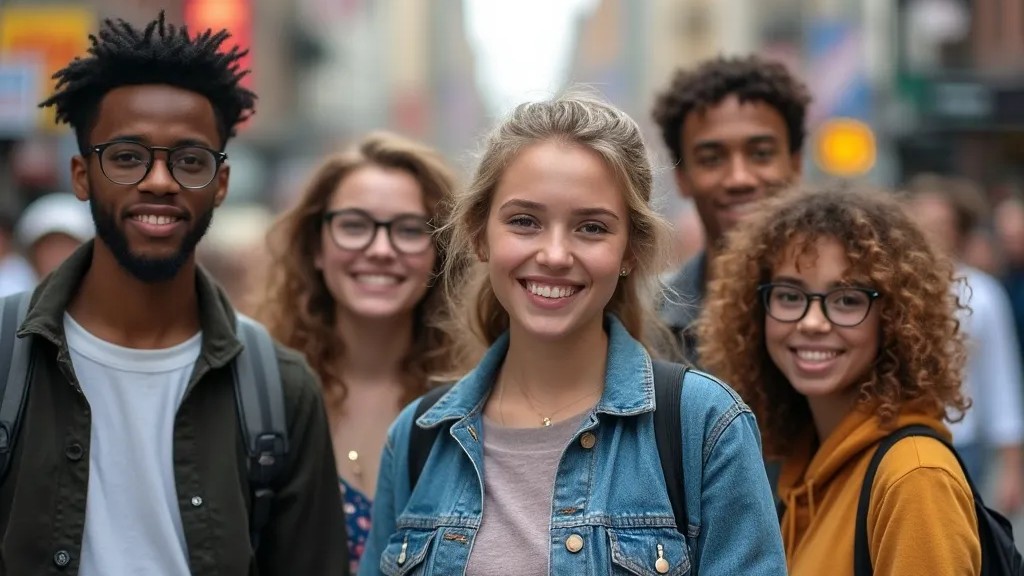
The rise of AI-generated images isn't just a problem for photographer's income. It's also sparking broader concerns about authenticity and misinformation. In 2024, deepfake images of celebrities and politicians have constantly been in the headlines. And with the rise of ethically lax platforms such as Grok, the year ahead is expected to bring even more convincing fakes. With the rise of platforms like Sora, too, fake videos will be as much of a worry as still images.
The implications are so profound, affecting everything from personal reputations to democratic elections that governments, tech companies and media organisations are all working hard to combat this issue. Initiatives like Adobe’s Content Credentials embed digital watermarks in AI-generated content, while organizations like the Coalition for Content Provenance and Authenticity (C2PA) are developing standards for media verification. Elsewhere, platforms like Meta have introduced 'AI info' tags, although enforcement remains inconsistent to say the least.
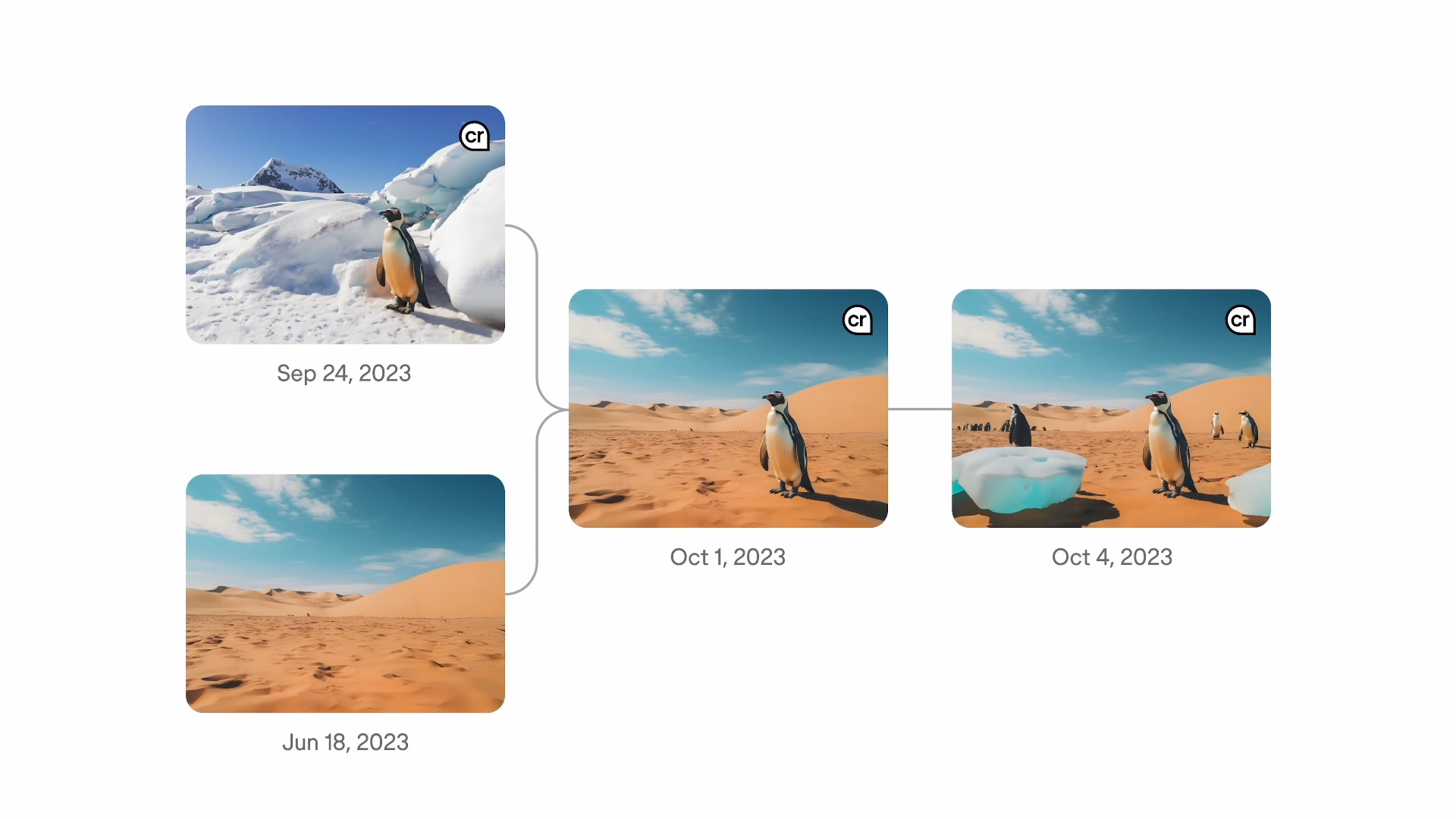
Despite these efforts, though, challenges persist. Watermarks can be removed, metadata can be manipulated, and the speed at which fake images spread often outpaces efforts to debunk them. Public education and robust detection technologies will be critical in addressing this issue, but success will require global coordination and significant investment.
In this environment, authenticity will increasingly become a selling point for photographers. Transparent workflows and the ability to demonstrate that an image was “made by a human with a camera” could set you apart in a landscape increasingly populated by AI-generated visuals.
4. AI in cameras provide security and safety
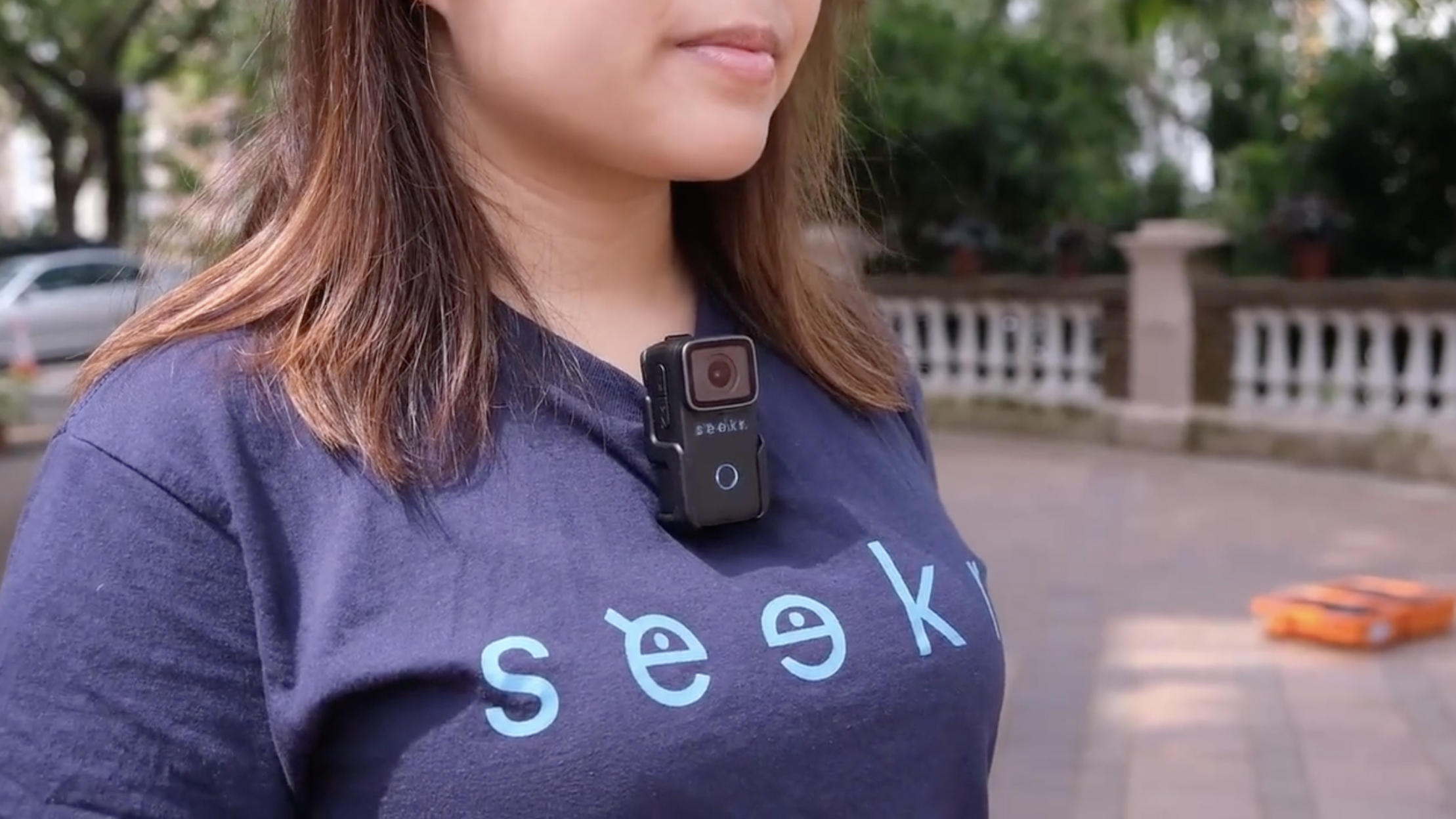
Not all AI developments are bad, of course: some are universally beneficial. AI-driven features like real-time object detection and tracking are already transforming how photographers capture moments, and these technologies will only get more sophisticated in 2025.
That's not just good for the profession: in recent few years, we've seen AI cameras playing a more and more important role in security and safety.
For example, AI-powered systems in swimming pools are preventing drownings by detecting erratic movement and alerting lifeguards. Wearable AI cameras like Seekr are assisting the visually impaired by describing their surroundings in real-time. And AI-powered detection is helping monitor animal movements and prevent accidents, such as elephants crossing railway tracks in India. Such innovations not only protect wildlife but also enable photographers to capture rare moments without disturbing natural habitats.
Conclusion
Overall, AI is reshaping the photography industry in profound ways, bringing both challenges and opportunities. While job displacement and the risk of homogenized creativity are genuine concerns, we also shouldn't overlook the potential for enhanced editing, improved safety and new creative tools.
Whatever you think of AI, though, it's here to stay, so you can't ignore it. And I firmly believe that by adapting to the coming changes and leveraging the unique qualities that only human photographers can offer, professionals can continue to thrive in a rapidly evolving industry.
The key lies in embracing AI as a partner rather than a competitor. Ultimately, that's the only way we can ensure the art of photography remains vibrant and meaningful in the age of artificial intelligence.
Check out our guide to the best AI image generators, and our review of what happened in AI imaging in 2024







